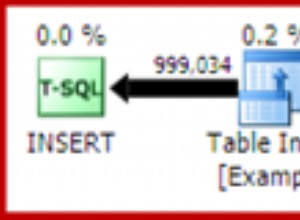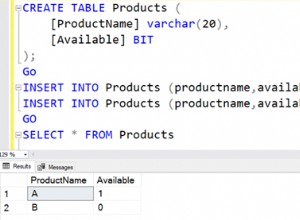Ich habe eine sehr grundlegende und einfache PHP-Klasse zum Überprüfen/Erkennen von SQL-Einschleusungsversuchen erstellt.
<?php
/**
* simpleSQLinjectionDetect Class
* @link https://github.com/bs4creations/simpleSQLinjectionDetect
* @version 1.1
*/
class simpleSQLinjectionDetect
{
protected $_method = array();
protected $_suspect = null;
public $_options = array(
'log' => true,
'unset' => true,
'exit' => true,
'errMsg' => 'Not allowed',
);
public function detect()
{
self::setMethod();
if(!empty($this->_method))
{
$result = self::parseQuery();
if ($result)
{
if ($this->_options['log']) {
self::logQuery();
}
if ($this->_options['unset']){
unset($_GET, $_POST);
}
if ($this->_options['exit']){
exit($this->_options['errMsg']);
}
}
}
}
private function setMethod()
{
if ($_SERVER['REQUEST_METHOD'] === 'GET') {
$this->_method = $_GET;
}
if ($_SERVER['REQUEST_METHOD'] === 'POST') {
$this->_method = $_POST;
}
}
private function parseQuery()
{
$operators = array(
'select * ',
'select ',
'union all ',
'union ',
' all ',
' where ',
' and 1 ',
' and ',
' or ',
' 1=1 ',
' 2=2 ',
' -- ',
);
foreach($this->_method as $key => $val)
{
$k = urldecode(strtolower($key));
$v = urldecode(strtolower($val));
foreach($operators as $operator)
{
if (preg_match("/".$operator."/i", $k)) {
$this->_suspect = "operator: '".$operator."', key: '".$k."'";
return true;
}
if (preg_match("/".$operator."/i", $v)) {
$this->_suspect = "operator: '".$operator."', val: '".$v."'";
return true;
}
}
}
}
private function logQuery()
{
$data = date('d-m-Y H:i:s') . ' - ';
$data .= $_SERVER['REMOTE_ADDR'] . ' - ';
$data .= 'Suspect: ['.$this->_suspect.'] ';
$data .= json_encode($_SERVER);
@file_put_contents('./logs/sql.injection.txt', $data . PHP_EOL, FILE_APPEND);
}
}
/* then call it in your app...
*********************************************/
$inj = new simpleSQLinjectionDetect();
$inj->detect();
Sie können es auf github überprüfen auch
Dies ist eine sehr einfache und grundlegende Klasse. Verbesserungsvorschläge / Aktualisierungen sind willkommen :)




